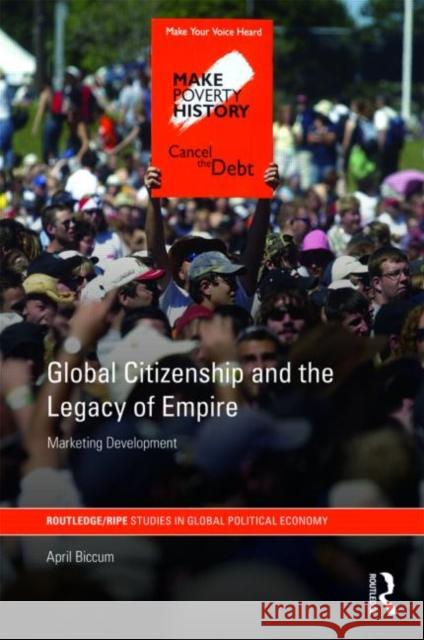Global Citizenship and the Legacy of Empire: Marketing Development » książka
Global Citizenship and the Legacy of Empire: Marketing Development
ISBN-13: 9780415461788 / Angielski / Twarda / 2009 / 210 str.
Global Citizenship and the Legacy of Empire: Marketing Development
ISBN-13: 9780415461788 / Angielski / Twarda / 2009 / 210 str.
(netto: 696,83 VAT: 5%)
Najniższa cena z 30 dni: 705,23
ok. 22 dni roboczych.
Darmowa dostawa!
This book investigates the parallels between mainstream development discourse and colonial discourse as theorized in the work of Homi Bhabha, Gayatri Spivak and Edward Said. Aiming to repoliticize post-colonial theory by applying its understandings to contemporary political discourses, author April Biccum critically examines the ways in which development in its current form has recently begun to be promoted among the metropolitan public. Biccum contends that what has begun is a sustained marketing campaign for development that is a repetition, augmentation and ultimately much greater success of the work of the Empire Marketing Board of 1926. Demonstrating how this marketing campaign for development attempts to facilitate support for neo-liberal globalization, Biccum contends that this theatre of legitimation is emerging in response to growing critical voices and counter-hegemonic activity on the international stage. Featuring in depth analyses of the UK, cultural values, DfID, the commemoration of the slave trade and campaigns including Live8 and Make Poverty History, this book will be of interest to students and scholars of postcolonial studies, development studies, and international political economy. It will also offer insights valuable to a wider range of subjects including critical theory and globalization studies.
What does post-colonial theory have to say to Development Studies?
Using post-colonial theory this book investigates the similarities between mainstream development discourse and colonial discourse as theorized in the work of Homi Bhabha, Gayatri Spivak and Edward Said. The author demonstrates that the attempted popularization of the mainstream liberal development narrative is a response to both the new international security environment and the voices that are not convinced by the inevitability of globalization under neo-liberal terms of trade. Biccum argues that a theatre of legitimation is emerging in response to growing critical voices and counter-hegemonic activity on the international stage.
It is these discourses which are attempting to popularize a very narrow understanding of development which the book demonstrates bears a heavy resonance with colonial discourses. The book contends that these recent means and methods of narrating development, nation, globalization, history and citizenship have the political effect of producing a political and cultural amnesia which will actually facilitate the maintenance of power weighted towards neo-liberal globalization if the very ambivalences of a project for producing a ‘global citizen’ are not hijacked and contested.
Featuring in depth analyses of the UK, cultural values, DFID, the commemoration of the slave trade and campaigns including Live8 and Make Poverty History, this book will be of interest to students and scholars of international relations, development, critical theory and globalization studies.











